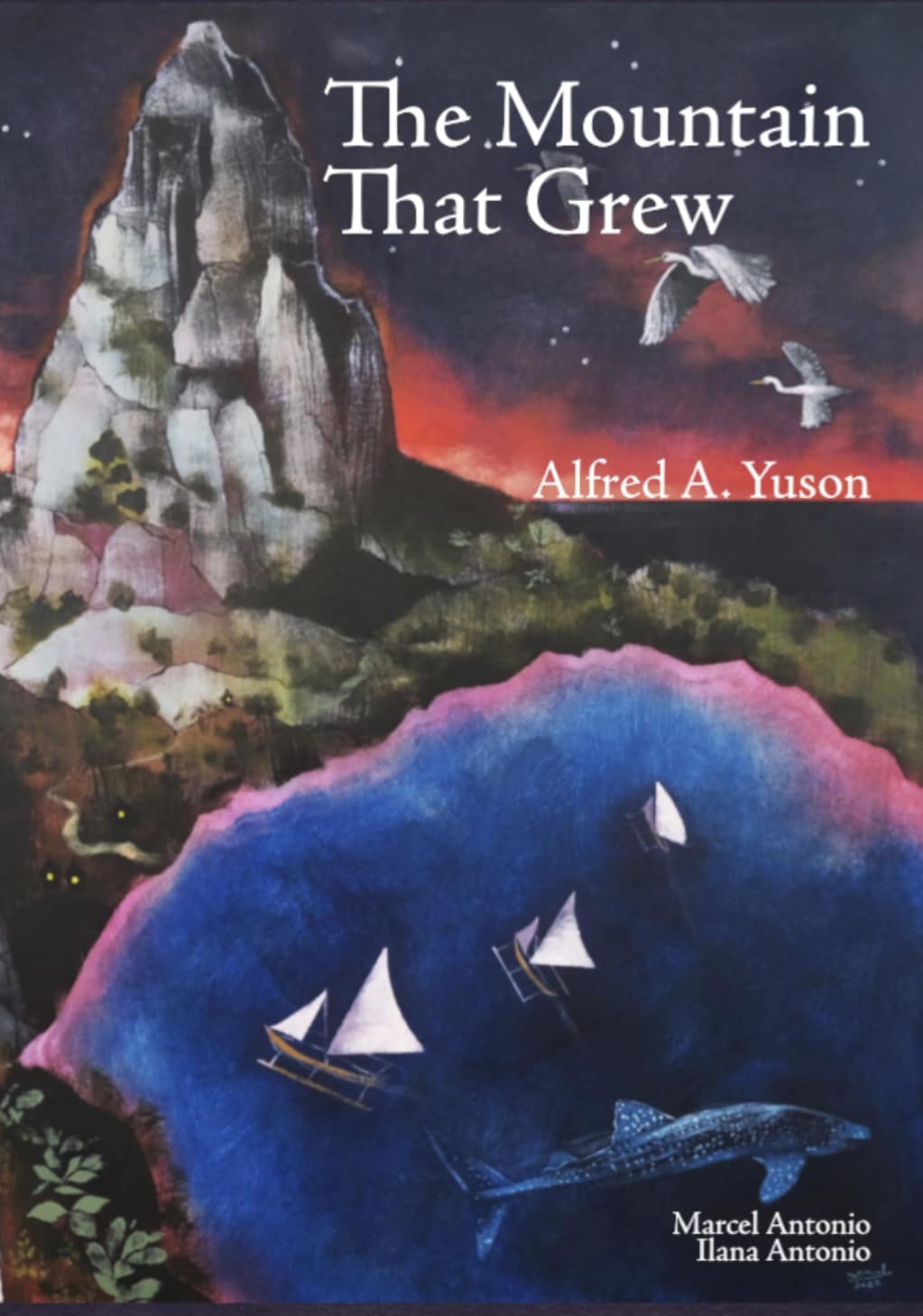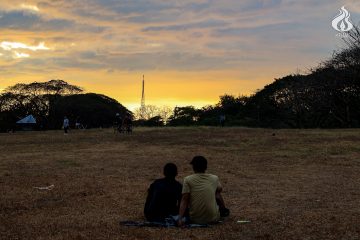by ABIGAIL M. ADRIATICO

THE IDEA that the grass is greener on the other side is one that a lot of Filipinos tend to believe. With the continuous rise of people seeking to find greener pastures in other countries, the belief that one’s life would be better off in foreign lands cultivates an ignored diaspora.
As more are inclined to leave their roots, there are fewer people remaining to look after the land which leads one to think of the fate of the land eagerly left behind.
Written by Alfred Yuson with its cover and illustrations made by Marcel and Ilana Antonio respectively, The Mountain That Grew is a short story centering on a mountain called Mt. Lariq in the barren island of Manao that mysteriously began to grow taller.
As Manao is depleted of its resources by previous inhabitants who seeked a better life elsewhere, a man named Ka Liser notices how the mountain begins to grow. He urges his fellow islanders to climb to its peak with him and discover what this strange phenomenon entails.
The book features a modern expressionist art style as the Antonios’ illustrations of both the cover and the pages give off a dream-like tone. This, in turn, reflects the allegorical nature of the story and adds more to the continuous motif of dreams throughout the book as it captures the whimsical yet mysterious aspects of Yuson’s tale. This is further aided by the color palette with varying shades of blue which gives a sense of serenity within each page.
Yuson is no stranger to writing literary pieces inspired by prevalent matters within society as some of his writings often delve into the nuances of Philippine culture. This theme embeds itself within The Mountain That Grew.
While the entire book allows room for various interpretations as it is brimming with symbolism, the story serves as an allegory to the issues the country is currently facing.
Throughout the book, there is a nod to the prevalent belief that one will have a better life if they are to live in foreign countries. This can be seen in the way the narrative shows how there is a growing number of islanders seeking better fortune in places other than their own, even at the cost of their island’s ruin. It is widely reflective of the current instance where there are far more Overseas Filipino Workers opting to leave the country each year with the allure of providing a better life for their families.
There is also a depiction of varying opinions of the islanders with regards to the events that occurred in the story. As their thoughts are depicted to be drastically different from one another, the islanders varied in the way that they handled the situation. Most of them lean towards a far more inward resolution as they left it to the hands of fate and awaited a unifying answer in their dreams. This can be interpreted as a mirror to the divisive perspectives that people tend to have as well as their tendency to rely on divine intervention in certain situations beyond their control.
As the story is meant to be allegorical, it can be quite confusing to the reader and might warrant multiple readings to make sense of what it may mean. However, this gives a sense of openness since there is no definitive meaning and readers are free to create their own interpretations which adds to the story’s charm.
The Mountain That Grew shows that while there are situations in one’s lives that cannot be avoided, it does not entail that it would be improved once you set your sights in other places. Most of the time, the grass only tends to be greener in one’s mind and they would be left with the realization that they are no better than from where they began. Perhaps, people simply need to grow right where they are in order to see that there is a beautiful scene awaiting them at the mountain’s peak. F



